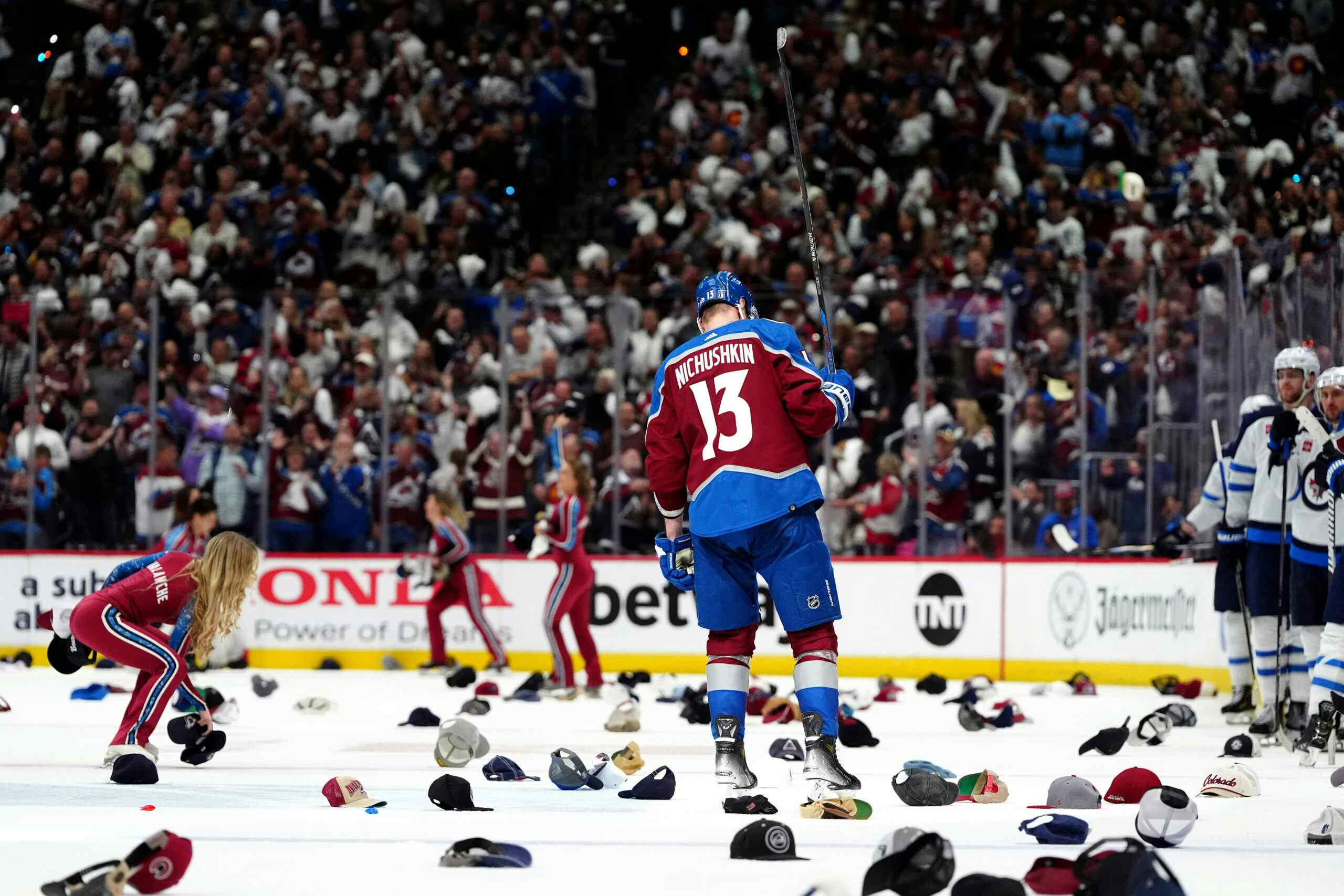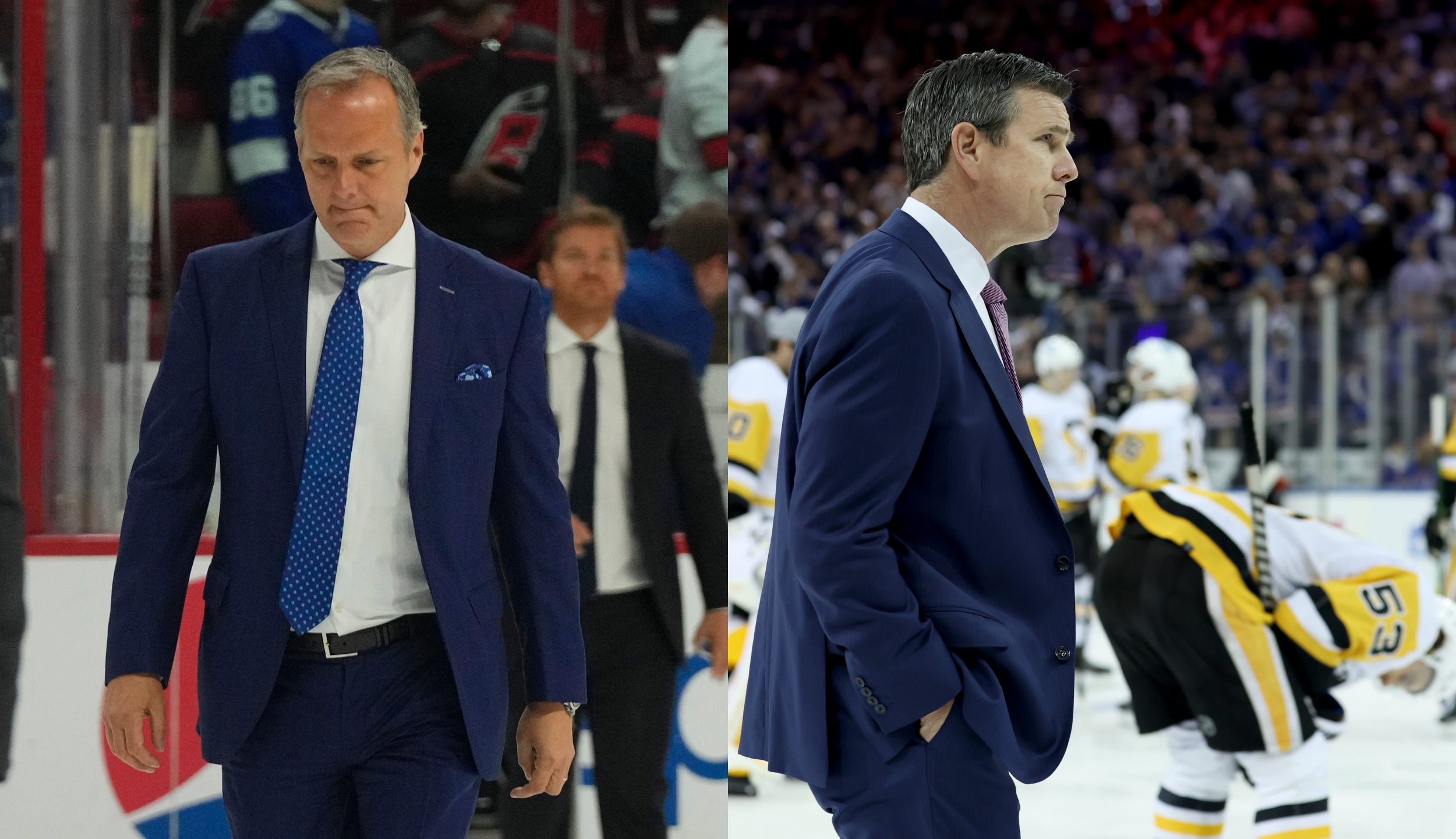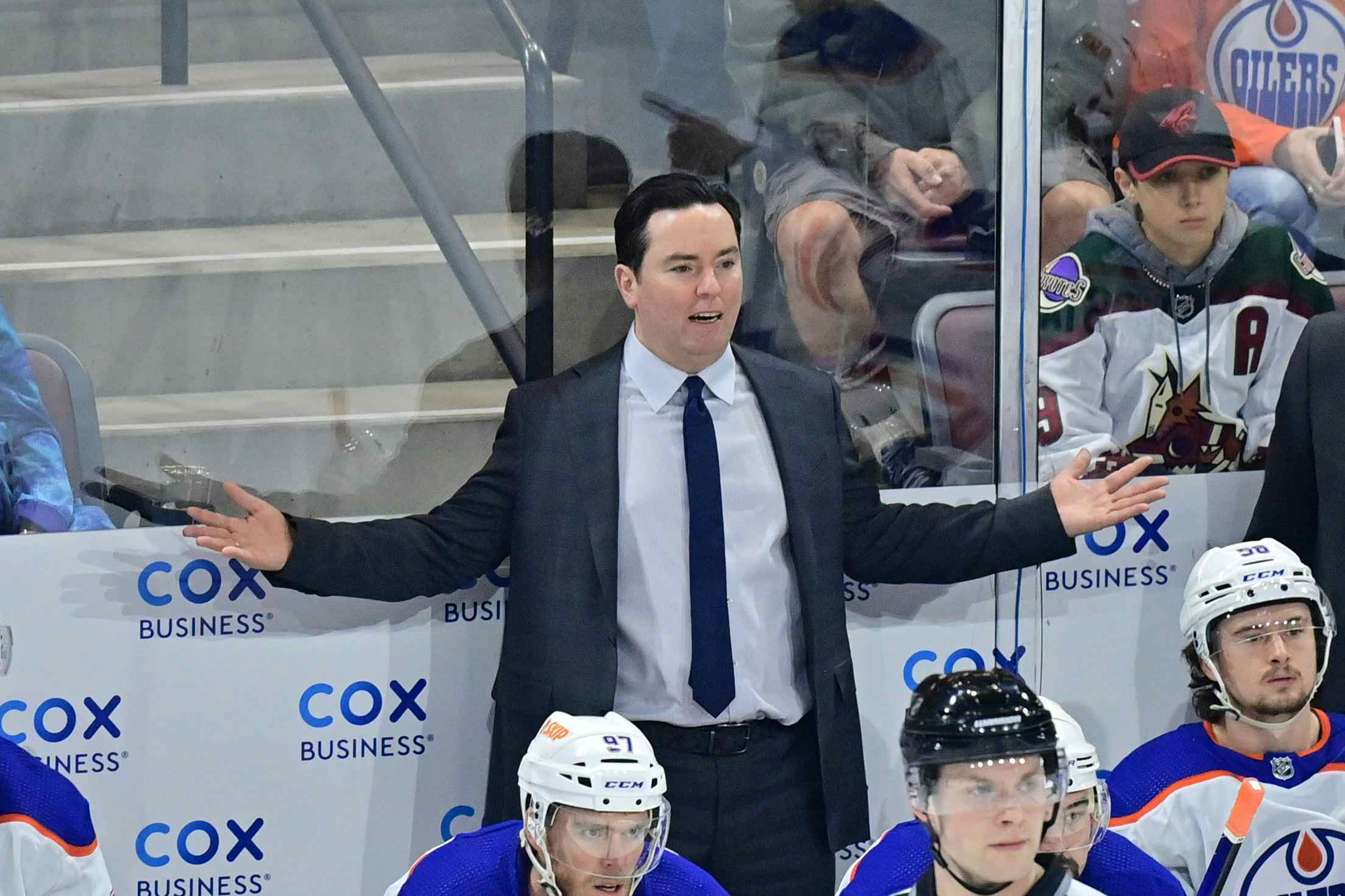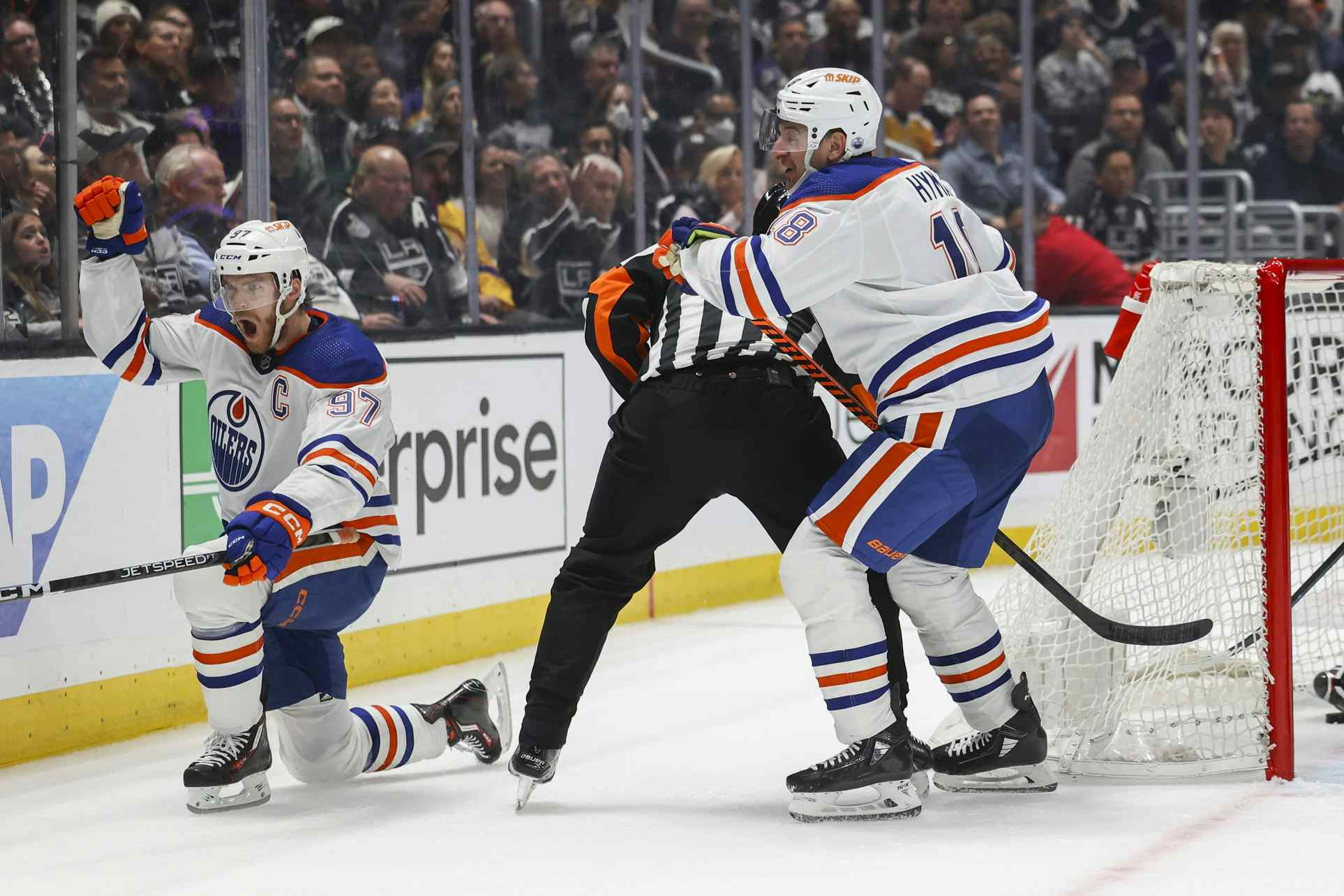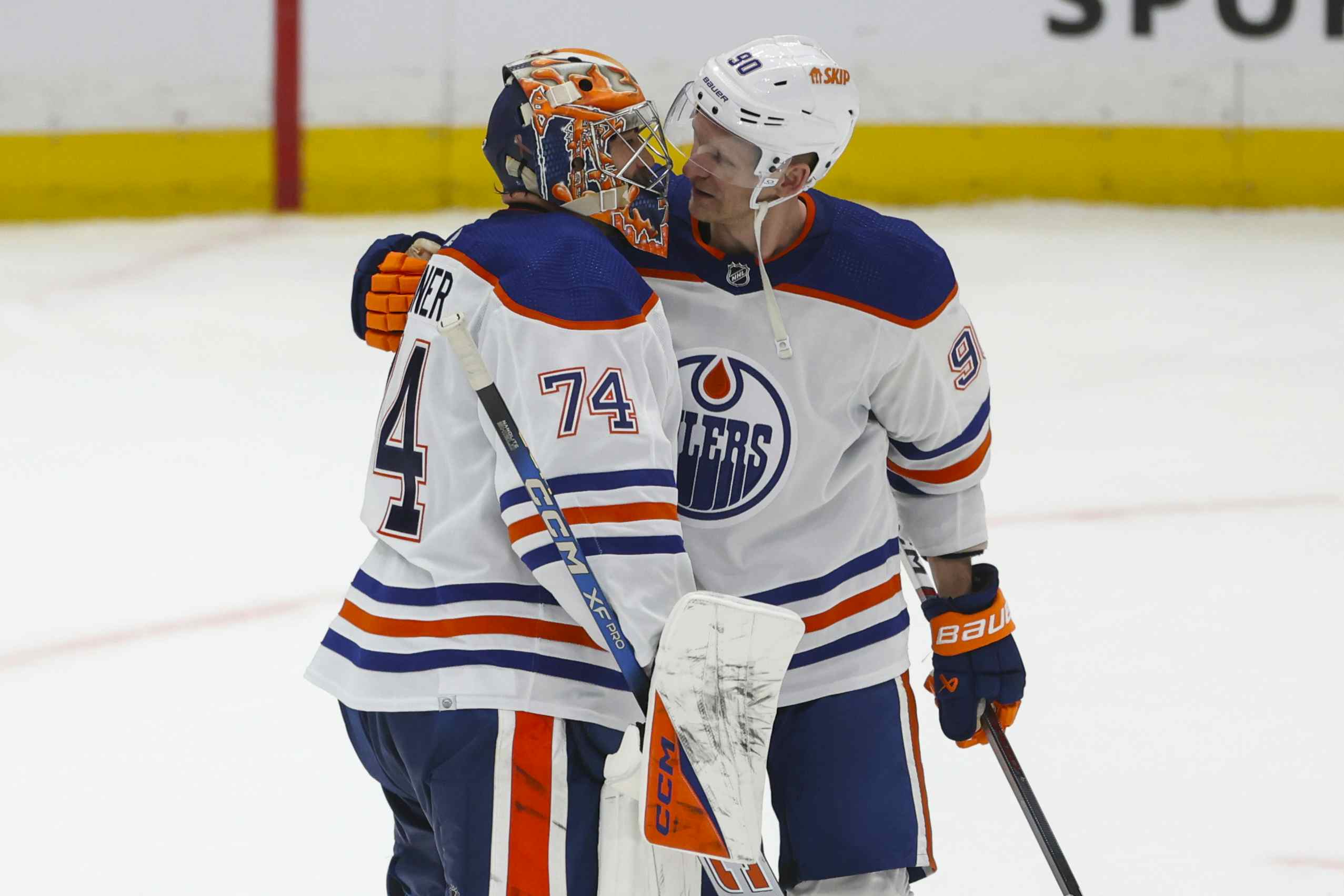Ten Points: This is no time to panic!
1. OMG! Two games, no points! Jordan Eberle and Ryan Nugent-Hopkins have no points through the Oklahoma City Barons’ first two games… but it’s two games. The only people who have serious concerns about this are the folks who expected the young stars to cut through the AHL like a hot knife through butter and start racking up five-point games out of the gate. The AHL is a good league, and Nugent-Hopkins and Eberle didn’t get into any pre-season action. They’ll be fine.

2. OMG! Two games, two points! Watching the Barons, I’ve been very impressed with Mark Arcobello. The 24-year old, 5’9” forward faces long odds of an impactful NHL career, but it’s easy to see why he was Oklahoma’s second-leading scorer last year. The influx of talent from the NHL has him on Oklahoma’s third line (with Anton Lander and Teemu Hartikainen) but he’s out-shone both of his linemates and a lot of the guys a little further up the lineup.
3. Nail Yakupov’s NHL role: soft minutes, at least at first. Watching Nail Yakupov in the KHL has been an interesting experience – it’s a very different game over there, but the talent level is quite high and there’s no question in my mind that Yakupov’s ready for NHL work. With that said, while I eventually picture him as a first line guy (aside from being a pure goal scorer, his possession game is excellent) for now he really looks like a guy who would do better in a second line role. His defensive game is erratic and he tends to cheat for offence so it would probably be a mistake to throw him to the wolves off the bat. Fortunately for Edmonton, between Taylor Hall, Jordan Eberle and Ales Hemsky there’s no need to drop Yakupov in the deep end.
4. The lockout and Andy Sutton. At the 2012 trade deadline, the Oilers had the option to retain Andy Sutton or to try and move him. Given the value of veteran defenders to playoff teams, Sutton likely would have been worth a mid-range draft pick or middling prospect. Instead, the Oilers chose to hang on to him and sign him for another season.
One of the side effects of a full season lockout would be to make that, by default, a bad decision. We’ve already touched on why Sutton’s place in the Oilers’ lineup in 2013-14 is in danger; the primary point of keeping him was the value he would provide to the team in 2012-13. If there’s no season, there’s no value. That’s not a reason to beat up on Oilers’ management of course – they needed to be prepared to play in 2012-13; it’s just a side effect worth noting.
5. The team-employed beat reporter. Something interesting’s been happening in Los Angeles for a few years now. When the local papers opted to stop sending reporters on the road with the Kings, the team hired a reporter to cover the club. Naturally, there were all sorts of questions about Rich Hammond’s independence, but that’s not an issue any more because thanks to the NHL, Hammond’s now out of a job.
Hammond, like any other reporter, opted to talk to hockey players about the lockout – in this case Kevin Westgarth. He posted the interview. The NHL demanded that it be removed, as team employees are to have no contact with players. The Kings stood by Hammond, but the NHL was firm. So now Hammond covers football, a choice he made to avoid editorial interference.
Meanwhile the Kings need to find a new beat reporter.
6. A big difference between 2012-13 and 2004-05. The last time around, there were no discussions between a week before the end of the collective bargaining agreement and the middle of October. The discussions this time around have been nearly constant. While those constant discussions haven’t gone anywhere, the fact that both sides are still talking is a lot better than both sides ignoring each other. If they talk long enough, one party or the other might accidentally say something that both sides can live with.

7. Dean Lombardi and the plan. There was an interesting interview with Dean Lombardi on the NHL website this week. While some of it was fluff, I thought one answer in particular – Lombardi responding to what the hardest thing about being a G.M. is – was intriguing:
So I would say the hardest part of the job, particularly when you’re building, the way we had to do it, is keeping everybody on the same page. This was Lamoriello’s huge thing. There is a plan in place, and I don’t care if you’re building a business, conducting a war or building a hockey team, that plan is going to have ups and downs and it’s going to waver, but it’s not going to require you to change course. If you do change course you’re going to fail, and that’s why franchises go a long time without winning anything.
It’s worth noting that had the Kings finished one spot lower in the West, we might be talking about Lombardi as the team’s ex-manager. On the other hand, it’s hard to argue his primary point: teams need a given course, and trying to run madly off in all directions leads to teams like the New York Islanders of the last two decades.
8. Minnesota’s unparalleled depth at center. If you’ve spent any time at all in the comments section here, you’ll have run into DSF. Personally, I enjoy his comments – and I think from time to time he makes excellent points. He’s highly critical of the Oilers (which is valuable because it’s a rarity on this site; different perspectives are useful) but it seems like every year he picks a few teams to go the other way on – optimism to the point of blindness.
His latest crush is the Minnesota Wild, specifically their depth at center. The other day DSF laid out Minnesota’s center depth chart as follows:
- Mikko Koivu
- Mikael Granlund
- Kyle Brodziak
- Torrey Mitchell
- Zenon Konopka
- Charlie Coyle
- Zack Phillips
- Darroll Powe
- Matt Cullen
It looks pretty frightening. I mean, when Matt Cullen is your ninth-best center, LOOK OUT, right?
Of course, it’s also crazy. Torrey Mitchell and Darroll Powe aren’t centers, for starters. They primarily play on the wing and fill in as needed. Ryan Smyth took more faceoffs than either last year and Taylor Hall was in the ballpark so unless one has a very unorthodox view of what constitutes a center, they don’t.
Granlund’s an excellent prospect, while Coyle and Phillips are both good ones. None of that group has played an NHL game yet, though. While that trio should help the Wild in their eventual rise from the basement, and perhaps even form the nucleus of an eventual contender, aside from Granlund they aren’t especially dangerous this season. And even in Granlund’s case we’re talking about a guy who might be 5’10” and who could well struggle with the physical nature of the North American game, at least in his rookie year.
A more accurate picture is probably something like this:
- Koivu
- Granlund
- Brodziak
- Konopka
Matt Cullen would likely start out on the wing and shift to center if needed. That’s not because he’s worse than Konopka, either; he’s simply wasted on the fourth line.
Put shortly: we can all relax. It’s the Minnesota Wild, not the 1970’s era Montreal Canadiens.
9. NHL’ers in Europe damage union solidarity? Really? It’s a favourite talking point of the league and the overtly pro-ownership members of the media, but I’m really not convinced that players jumping ship for Europe hurt the union. They do bump fringe guys out of jobs – much like the demotion of Hall, Eberle and the rest knocked Philippe Cornet down to the ECHL – but that’s an ethical issue, not a union one.
Sure, it reduces the number of NHLPA members actively available to work on negotiating the lockout, and it means that some guys are making money while others aren’t. But it also means that the guys antsiest to play hockey are playing hockey. I don’t see that as a negative from the NHLPA’s perspective. Besides which, some NHLPA members are already making money – some guys are earning up to eight figures off their signing bonuses even if they don’t play hockey.
10. Be careful when using “Night in Canada.” Here’s some fun television news that’s hockey related. CTV planned to compensate for the NHL lockout by offering “Big Bang Night in Canada” – a Saturday night block of The Big Bang Theory re-runs. CBC responded by sending an angry letter to CTV, protesting the use of “Night in Canada” and describing such usage as “confusing.” CTV followed that up on Friday with a sarcastic press release (sample line: “Apparently, reasonable viewers could consider encore hockey broadcasts “confusing” with the widely popular comedy series about four socially awkward scientists and their friends”). CBC quickly retracted their letter.
Recently by Jonathan Willis
- The Edmonton Oilers blue line: It’s a dog eat dog world
- Nugent-Hopkins, Eberle pointless in 2-1 loss
- The complete Edmonton Oilers organizational depth chart
- 10 Points: Oklahoma!
- The Trevor Linden trade: Hurray, Mike Keenan!
- Nail Yakupov 3, St. Petersburg 2
- Will Ryan Nugent-Hopkins always be bad at faceoffs?
Recent articles from Jonathan Willis

